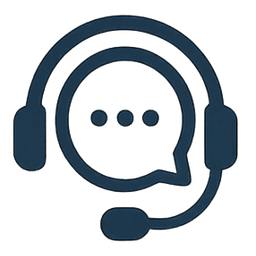In the competitive business world, exceptional customer service can be the defining factor that sets your company apart. Implementing stellar customer service strategies not only enhances customer satisfaction but also fosters loyalty, drives referrals, and ultimately boosts your bottom line. Here, we explore actionable strategies to elevate your customer service game.
Understand Customer Needs
The foundation of excellent customer service lies in understanding your customers' needs. This involves actively listening to feedback, observing consumer behavior, and analyzing data to gain insights into their preferences and expectations. By accurately identifying what your customers value most, you can tailor your services to better meet their requirements, thus improving the overall experience.
Implement a Customer-Centric Culture
Empower Your Employees
Empowering employees to make decisions that benefit the customer is crucial. Providing training programs that focus on developing soft skills, such as empathy and active listening, allows your team to handle customer interactions more effectively. Encourage employees to take initiative and resolve issues swiftly, boosting customer satisfaction.
Foster Open Communication
A company that encourages open communication across all levels tends to resolve customer issues more efficiently. Ensure that your front-line staff has direct access to information and resources necessary to handle inquiries or complaints. A seamless communication flow within your organization translates to better service for your customers.

Leverage Technology for Improved Service
Utilize CRM Tools
Customer Relationship Management (CRM) tools are invaluable in maintaining detailed records of customer interactions, preferences, and feedback. By utilizing these tools, you can offer personalized service, track client history, and anticipate future needs, leading to a more tailored customer experience.
Implement Chatbots and AI
Integrating AI and chatbot technologies into your service framework can significantly enhance customer satisfaction by providing instant responses to common inquiries. These technologies operate 24/7, ensuring that customer questions are addressed promptly, thus reducing wait times and improving overall service efficiency.
Solicit and Act on Customer Feedback
Feedback is a powerful tool for understanding how customers perceive your service. Regularly solicit feedback through surveys, reviews, and direct conversations. More importantly, act on the feedback by making necessary improvements. Demonstrating that you value and respond to their input not only improves service but also strengthens customer loyalty.
Train for Consistency and Quality
Consistent service quality is key to maintaining a positive customer experience. Develop comprehensive training programs that focus on standardizing the quality of service across all touchpoints. This consistency ensures that customers receive the same high level of service every time they interact with your company.
FAQs
What role does technology play in customer service ?
Technology plays a significant role by streamlining processes, offering instant communication via chatbots, and utilizing CRM systems for personalized customer service. It helps in providing quicker responses and maintaining customer satisfaction.
How can I measure the effectiveness of my customer service strategies ?
You can measure effectiveness by tracking metrics such as customer satisfaction scores, net promoter scores, and customer retention rates. Analyzing feedback from customer surveys can also provide insights into areas of success and those needing improvement.
Why is it important to empower employees in providing customer service ?
Empowered employees are more confident in resolving customer issues and can provide more prompt and effective service. This empowerment leads to increased employee satisfaction, which reflects positively in customer interactions and overall business performance.
How should a company prioritize training for customer service staff ?
Companies should prioritize ongoing training that focuses on both product knowledge and customer interaction skills. Regular workshops and real-world scenario-based training can equip staff with the tools necessary to handle diverse customer needs consistently and effectively.








